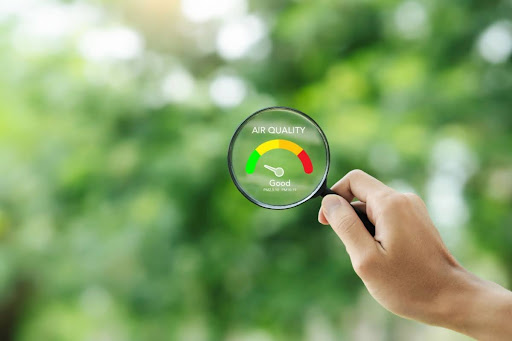As the gentle breezes of spring roll in, ushering out the last traces of winter, it’s the perfect time to focus on rejuvenating the atmosphere inside your home. Improving indoor air quality isn’t just about making your space smell fresher; it’s about creating a healthier living environment for you and your loved ones.
As a trusted HVAC company in Denver, CO, we’re masters at making sure your indoor air quality is at its best. We offer thorough indoor air quality services, including state-of-the-art indoor air quality testing, to homes and businesses across the region. We are passionate about keeping Denver a place where nature lovers and outdoor enthusiasts can breathe easy – even when they’re inside.
We’ve compiled a list of tips and tricks you can follow to improve your home’s air quality this spring, in addition to employing our expert services.
What Is Indoor Air Quality?
Indoor air quality refers to the cleanliness of the air inside your home. Factors that influence this include air pollutants from cleaning agents, dust accumulation, volatile organic compounds, and even the type of air filters your HVAC system uses. Poor air quality can contribute to various health issues, from minor irritations like sneezing and allergies to more serious respiratory problems. This spring, take a moment to assess your home’s air and consider what steps you might take to improve it.
Key Strategies to Improve Indoor Air Quality
1. Regular Replacement of Air Filters
One of the simplest yet most effective ways to preserve the air in your home is to change the air filters in your HVAC system regularly. Over time, air filters become clogged with dust, pollen, and other airborne particles. By replacing them every 30-90 days, depending on usage and type, you ensure your system isn’t recirculating contaminated air throughout your home.
2. Deep Cleaning Air Ducts
Your home’s air ducts are the arteries through which air circulates. However, they can also harbor various indoor air pollutants, including dust and mold. An air duct cleaning can drastically reduce the amount of particulate matter and allergens in your home, promoting better air circulation.
3. Investing in Air Purifiers
Adding an air purifier to the most frequented rooms in your house can significantly improve home air quality. Air purifiers work by trapping pollutants and recirculating clean air. For the best results, opt for purifiers with HEPA filters, which can capture particles as small as 0.3 microns, effectively removing contaminants from your indoor air.
4. Controlling Humidity Levels
Too much moisture can make your home a breeding ground for mold and mildew, which are notorious for deteriorating air quality. Use dehumidifiers to keep humidity levels in check, ideally between 30% and 50%. This not only helps air quality but also protects the structural integrity of your home.
5. Natural Ventilation
Open windows and doors to allow fresh outdoor air to displace the stale indoor air. Natural ventilation is one of the most effective ways to reduce the concentration of air pollution in your home. Even a few minutes a day can significantly affect how your indoor air feels and smells.
6. Keeping Your Home Clean
Regular cleaning eliminates accumulations of dust, pet dander, and other debris that contribute to poor air quality. Use natural cleaning products where possible, as conventional cleaners often release harmful chemicals into the air. Vacuuming at least twice a week with a HEPA filter vacuum can also help keep allergens and dust at bay.
7. Be Mindful of Indoor Plants
Plants are not only decorative but also excellent at maintaining good air quality. They absorb carbon dioxide and release oxygen through photosynthesis, but they can also remove toxins from the air. Pick plants like spider plants, peace lilies, and Boston ferns that are known for their air-purifying abilities.
Benefits of Good Indoor Air Quality
The advantages of a healthy indoor environment cannot be overstated. When the air inside your home is clean, it significantly reduces the risk of respiratory conditions, allergies, and asthma, making everyday breathing more accessible and pleasant. A home with well-maintained air quality also sees fewer airborne pathogens, which can mean fewer illnesses for you and your family. Beyond health, good air quality can improve sleep quality, enhance cognitive function, and increase overall life satisfaction by creating a serene environment that nurtures the mind and body.
Learn More Spring Cleaning Tips to Improve the Air You Breathe Indoors!
We encourage all homeowners to consider these tips seriously and take proactive steps toward purifying their home’s atmosphere. If you’re unsure where to start, want to learn more, or need professional help, contact us today! Our expert team can help assess your current air quality, suggest improvements, and perform necessary maintenance on your HVAC system so your family breathes the cleanest air possible.






